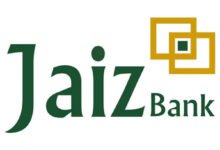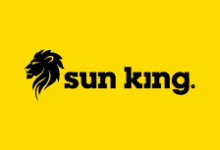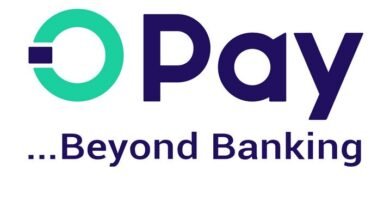What are Islamic Banks? List of Islamic Banks in Nigeria: Their Origin, Growth and Details
Islamic banks in Nigeria operate under a unique financial framework that adheres to Islamic principles and ethics. Like traditional banks, they provide financial products and services to individuals, businesses, and the community. However, what distinguishes Islamic banks is their commitment to Shariah law, which guides their operations and decision-making.

Unlike conventional banks, Islamic banks do not engage in activities that are prohibited in Islam such as charging or paying interest (riba), or investing in industries that are deemed unethical. Instead, they employ alternative modes of finance such as profit-sharing (mudarabah) and cost-plus financing (murabahah) to meet their customer’s needs.
For instance, the profit-sharing method involves a partnership between the bank and its customers, where profits and losses are shared according to pre-agreed terms. Meanwhile, in cost-plus financing, the bank buys an asset on behalf of the customer and sells it back at a predetermined price, including an agreed profit margin.
It’s worth noting that there are several Islamic banks in Nigeria, and each has its origin, growth, and details. A complete analysis of the List of Islamic Banks in Nigeria is available below.
The Origin of Islamic Banks in Nigeria
Islamic banking has become popular in Nigeria since the late 1990s and early 2000s. The Central Bank of Nigeria (CBN) 2011 issued guidelines for the establishment of an Islamic banking system, allowing banks to operate according to the principles of Islamic finance, according to Sharia law.
Nigeria’s first Islamic bank, Jaiz Bank, was established in 2012 with a capitalization of N10 billion and initially operated as a zero-interest bank. However, it became an official Islamic bank in 2016, offering various banking services such as savings accounts, current accounts, and investment accounts, all of which comply with Islamic law.
Today, Jaiz Bank is considered the largest and most successful Islamic bank in Nigeria, with over 40 branches across the country, providing a wide range of financial services to its growing customer base. me. Other Islamic banks have also been established in Nigeria, including Taj Bank and SunTrust Bank.
Islamic banking offers customers an alternative to conventional banking services, based on Islamic principles that prohibit interest or usury. Transactions between banks and their customers are based on profit and loss sharing, where the bank shares in the customers’ profits instead of charging them interest.
Overall, Islamic banking has seen rapid growth in Nigeria as more and more customers seek ethical and Shariah-compliant financial solutions. It offers a unique opportunity for investors, entrepreneurs, and individuals to invest their money in a sustainable and socially responsible manner.
Growth and Popularity of Islamic Banking in Nigeria
Islamic banks have become popular in Nigeria in recent years, providing an alternative banking system for Muslims who want to tailor their financial transactions to their religious beliefs. Nigeria’s Islamic banking sector has seen significant growth in recent years, with several Islamic banks operating in the country.
As of 2023, there are more than 10 officially licensed Islamic banks operating in Nigeria. These banks offer a variety of Shariah-compliant financial products and services, including savings accounts, current accounts, trade finance, and loans. In addition to these official Islamic banks, there are also a number of conventional banks in Nigeria that offer Islamic banking products and services.
In terms of growth, the Islamic banking sector in Nigeria has shown significant progress. According to the Central Bank of Nigeria (CBN), the assets of Islamic banks in Nigeria increased from N22.8 billion in 2012 to N208.4 billion in 2019, an increase of more than nine times just after 7 years. This shows that more and more Nigerians are adopting Islamic banking, a trend that is expected to continue in the coming years.
The growth of the Islamic banking sector in Nigeria can be attributed to several factors. First, the growing awareness of Islamic finance among Nigerian Muslims has led to increased demand for Sharia-compliant banking services. Second, the CBN has supported the industry and implemented policies to promote growth. For example, the CBN issued the Guidelines for the Regulation and Supervision of Islamic Financial Institutions in 2011, providing a framework for the establishment and operation of Islamic banks in Nigeria.
The Nigerian government also supports Islamic finance, recognizing its potential as a driver of economic development and financial inclusion. For example, the government has taken steps to include Islamic finance in its national financial inclusion strategy, with the aim of increasing access to financial services for underserved populations. full service.
In conclusion, the growth and popularity of Islamic banking in Nigeria represents a significant development in the country’s financial sector. With the growing demand for Shariah-compliant financial products and services, coupled with supportive policies from the government and regulators, the future of Islamic banking in Nigeria looks bright.
List of Islamic Banks in Nigeria: Their Origin, Growth and Details
Islamic banking has gained popularity globally in recent years, and it has been successfully adopted in Nigeria. The country has several operational Islamic banks that provide financial services that comply with Islamic principles. This article will explore seven Islamic banks in Nigeria:
their origin, growth, and details.
Jaiz Bank Nigeria
Jaiz Bank is Nigeria’s first and largest Islamic bank. It was established in 2003 and began full operations in 2012 after receiving an Islamic banking license from the Central Bank of Nigeria. The bank has grown steadily over the years, with branches in over 23 states in Nigeria. Jaiz Bank offers a wide range of financial products, including savings accounts, current accounts, and investment accounts, all of which are Shariah-compliant.
Taj Bank Ltd:
Taj Bank is one of the newest Islamic banks in Nigeria, established in 2019. The bank offers a wide range of services, including personal and corporate banking products, investment services, and treasury services. Taj Bank is committed to providing a unique financial experience that is Shariah-compliant, transparent, and customer-centric.
SunTrust Bank Nigeria
SunTrust Bank Nigeria commenced operations in 2016 as a commercial bank. However, in 2019, it became Nigeria’s first official Islamic bank. The bank offers a range of financial services, including deposit accounts, and financial and investment products, all following Islamic banking principles. SunTrust Bank is fully committed to providing sustainable and ethical banking solutions to its customers.
Sterling Bank Plc
Sterling Bank was established in 1960 and is a famous commercial bank in Nigeria. However, in 2019, the bank launched Sterling Alternative Finance, a subsidiary that offers Shariah-compliant financial services to its customers. Sterling Alternative Finance offers a variety of products, including savings accounts, current accounts, and investment opportunities, all designed to comply with Islamic social and ethical principles.
Lotus Capital Limited
Lotus Capital Limited is one of Nigeria’s leading Islamic investment banks. It was established in 2004 and became Nigeria’s first official Islamic financial institution after receiving regulatory approval from the Central Bank of Nigeria. The bank offers a range of services including wealth management, investment banking, and alternative financial solutions.
Islamic Finance and Investment Limited (IFIL)
IFIL is one of the oldest providers of Islamic financial services in Nigeria. It was established in 1993 and offers a range of products and services, including financing, investment opportunities, and savings plans, all of which comply with Islamic banking principles. Today, IFIL is committed to providing its customers with flexible and innovative Shari’ah-compliant financial solutions.
Jaiz Takaful Insurance
Jaiz Takaful Insurance is Nigeria’s leading and leading Islamic insurance provider. Established in 2016, Jaiz Takaful Insurance offers a variety of insurance products, including auto insurance, travel insurance, and home insurance, all of which comply with Islamic principles.
FAQs on What are Islamic Banks? List of Islamic Banks in Nigeria: Their Origin, Growth and Details.
1. What is Islamic Banking?
Islamic banks are financial institutions that operate according to Islamic law, also known as Sharia law. Unlike traditional banks, they do not charge interest on loans but rely on profit-sharing agreements with customers.
2. When did Islamic banking start in Nigeria?
The Islamic banking system in Nigeria began in 2003 with the establishment of Jaiz Bank. Since then, several other Islamic banks have been established in the country.
3. What are the main Islamic banks in Nigeria?
Major Islamic banks in Nigeria include Jaiz Bank, Taj Bank, SunTrust Bank, and Lotus Bank. These banks offer a range of financial services such as savings accounts, current accounts, and investment opportunities.
4. What is the growth rate of Islamic banks in Nigeria?
The growth rate of Islamic banks in Nigeria has been steady since their inception. Although they currently make up only a small percentage of the country’s total banking sector, their popularity is growing, especially among Muslims who want to manage financial affairs consistent with their faith.
5. What differentiates Islamic banking from conventional banking?
The main difference between Islamic banking and conventional banking is the way they manage money. In Islamic banking, all transactions must be based on ethical and moral principles, and profit-based transactions are strictly prohibited. Instead, Islamic banks rely on profit-sharing agreements and other Sharia-compliant financial models.
Conclusion
Islamic banks is a growing sector in Nigeria, offering a wide range of services to customers who value ethical and Shariah-compliant financial practices. With several major banks currently operating in the country, customers have many options when choosing Islamic banking.









